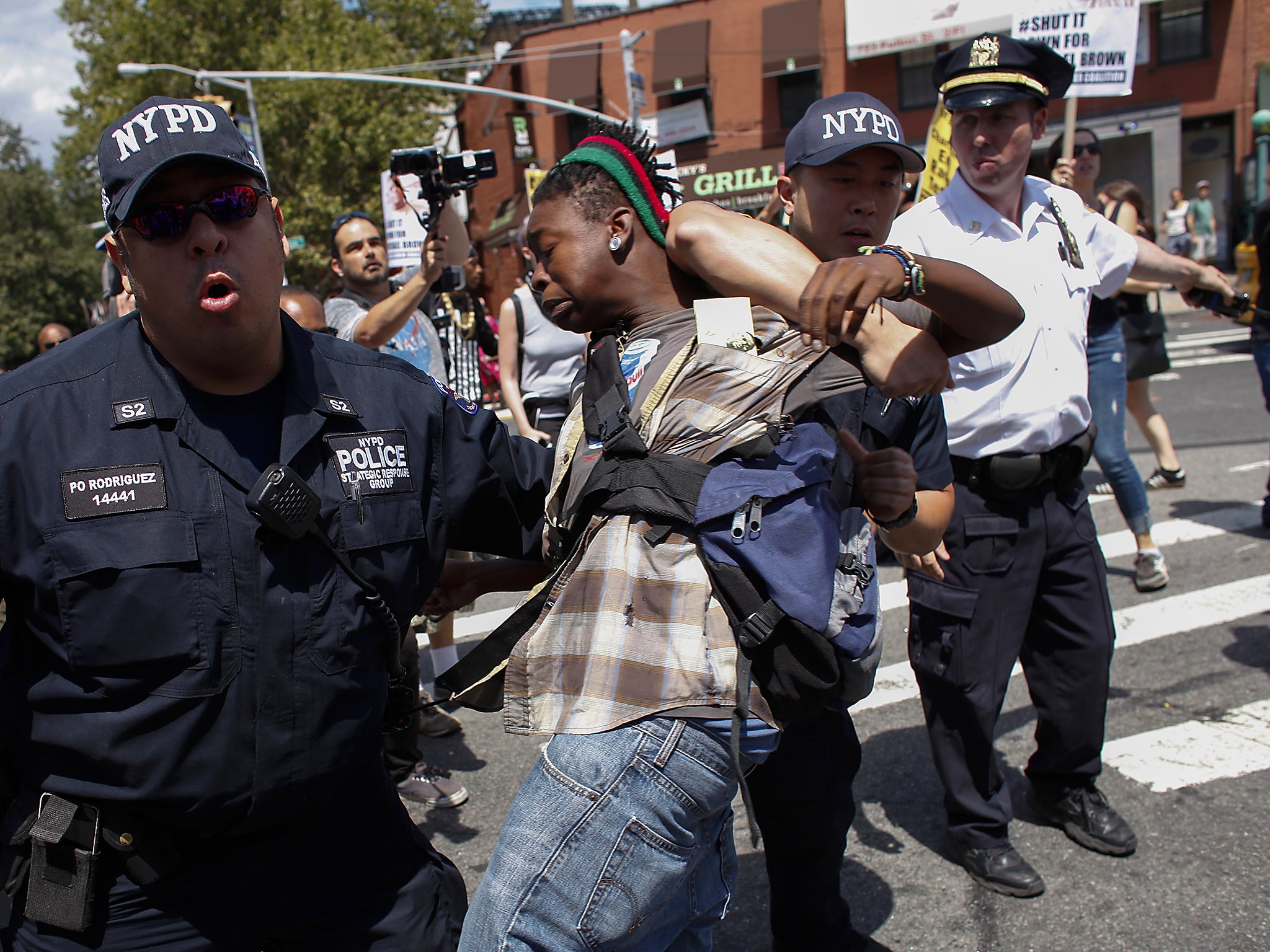Black men 2.7 times more likely to be killed by US police than white men, study finds
Asian men and those from the Pacific islands were the least likely to be die at the hands of law enforcement officers

Your support helps us to tell the story
From reproductive rights to climate change to Big Tech, The Independent is on the ground when the story is developing. Whether it's investigating the financials of Elon Musk's pro-Trump PAC or producing our latest documentary, 'The A Word', which shines a light on the American women fighting for reproductive rights, we know how important it is to parse out the facts from the messaging.
At such a critical moment in US history, we need reporters on the ground. Your donation allows us to keep sending journalists to speak to both sides of the story.
The Independent is trusted by Americans across the entire political spectrum. And unlike many other quality news outlets, we choose not to lock Americans out of our reporting and analysis with paywalls. We believe quality journalism should be available to everyone, paid for by those who can afford it.
Your support makes all the difference.Black and Native American men are more than two-and-a-half times more likely to be killed by the police, according to a new study.
The researchers, who looked at 2,285 deaths attributed to law enforcement between 2010 and 2014, found that among black men the death rate from police action was 6.8 per million of population with the figure for Native Americans slightly higher at 6.9.
This compared with 4.1 per million for Hispanic men, 2.5 for white men and 1.5 for Asian men or those from the Pacific islands.
Concern about the deaths of black people in the US at the hands of the police and others has spiked following a number of highly controversial cases, such as the killings of Trayvon Martin, 17, Eric Garner, a 44-year-old father-of-six, and 18-year-old Michael Brown, leading to the Black Lives Matter protest movement.
The Bahamas Foreign Affairs Ministry was moved to warn young black men to "exercise extreme caution" when dealing with police in certain US cities.
Professor James Buehler, who carried out the new research, said: “As a public health person, any large disparity in health is a concern to me.
“Awareness of these differences should encourage ongoing attention to finding solutions to this problem.”
The findings of this research at a population level are in contrast to a more focused study of police shootings in Houston by Harvard University economist Professor Roland Fryer, who found there was no difference between how likely officers there were to shoot black or white suspects.
However Professor Buehler, of Drexel University's Dornsife School of Public Health in Philadelphia, said he felt this study had been misinterpreted to an extent by some commentators.
“I undertook this brief investigation into 'legal intervention deaths' – deaths that resulted from the actions of law enforcement officers -- because I felt that the investigation by Fryer, even though it represented an in-depth assessment of police encounters, was interpreted in a way that left out an important part of the whole picture,” he said.
“The population-level approach provides another perspective by taking as a starting point, not the outcome of encounters with police, but instead a description of all legal intervention deaths in a population.”
Professor Buehler’s study was published in the American Journal of Public Health.